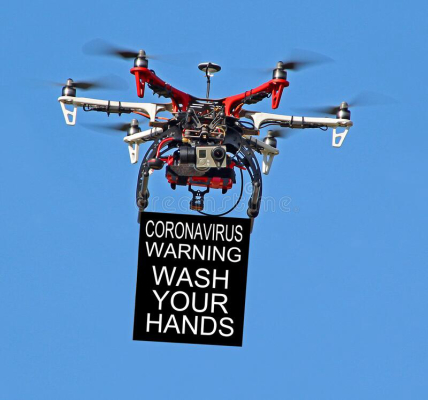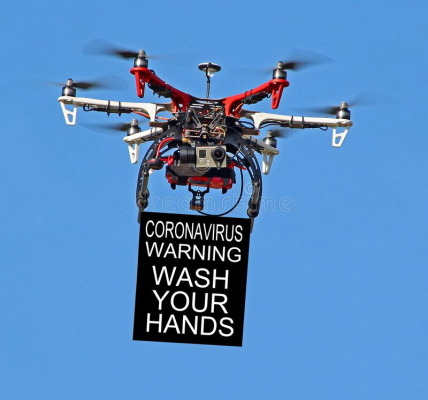April 14 (African Post Online) — A prominent Ghanaian doctor said, “When I was doing my master’s in Germany, one of our lecturer’s asked a question. Who is the most important person in a team managing a Public Health Emergency of International Concern (PHEIC)?
I said it was the virologist who deals with the virus and tells us the makeup. Someone said it was the clinician in the hospital and then another person said the person doing the contact tracing. The answer was shocking. It was the Public Relations head who is the source of information to the public.
It was then that our attention was drawn to the fact that if the work done by the medical team is not communicated properly to the public, those you want to protect can resist.” Since 2009 there have been six procedures concerning public health emergencies of international concern (PHEIC) declarations and the latest being the ongoing coronavirus (COVID-19) pandemic.
The World Health Organization (WHO) guideline for emergency risk communication policy states that “During public Health emergencies, people need to know what health risks they face, and what actions they can take to protect their health and lives. Accurate information provided early, often, and in languages and channels that people understand, trust and use, enables individuals to make choices and take actions to protect themselves, their families and communicates from threatening health hazards.”
African states in their quest to reduce and eventually eradicate the COVID-19 pandemic must adopt effective communication strategies in addition to the precautionary measures by WHO. Our best bet as a continent in the fight against COVID-19 will be to get all citizens especially those in our rural communities to understand how dreadful this virus is.
A comprehensive communication strategy in the various local dialects across the continent is needed now more than ever as Africa’s cases of COVID-19 stands at about 14,000.
Although at the Global level Ghana is praised for her efforts in the fight against COVID-19, more deliberate effort is needed to educate a large section of the population at the district and local level.
It is worrying to note that the Information Service Department is not being seen actively engaging and sensitizing the public on COVID-19 and the need to take precautionary measures seriously to stop the spread of the virus.
It is sad to have citizens defy social distancing protocols to protest that secondary school facilities should not be used as quarantine centres, even more, freighting is the report that the family of a deceased person suspected to have died of COVID-19 without any travel history refuses to subject themselves to mandatory quarantine and testing and putting the lives of many others at risk.
Then the disturbing incident of residents of Chorkor, a suburb of Accra, trooping the beach in their numbers to enjoy themselves on Easter Sunday, April 12, 2020.
Also, hundreds of people in Asokwa in Kumasi, Ashanti Region, ignored social distancing as about 500 people assembled in a long queue to receive food distributed by the National Disaster Management Organisation (NADMO).
It is said that when you speak to a man in the language he hears, it goes to his ear, but when you speak to a man a language he understands, it goes to his heart.
Government and community leaders must deploy a decentralized approach to communicate effectively on issues of COVID-19.

For example, Rwanda is using drones to raise awareness of COVID-19 and seen as an aggressive way to communicate with the citizens to curb the spread of the virus.
Jonathan Fielding a professor of public health and paediatrics at the University of California in a related article, said that the result of communication-based on hope and not fact was not only confusing but led to mistrust.
Recent polling shows that more Americans trust the measured, fact-based communications of public health institutions for their information than they do with the White House. A CBS News poll from March 24th found respondents trusted health authorities (doctors and nurses, 88 per cent; the centre for Disease Control [CDC], 82 per cent) more than the President (44 per cent) to give them accurate COVID-19 information.
Having a more informed population on COVID-19 ready to adhere strictly to all safety protocols will lead to a drastic reduction in the spread of the virus.
Coronavirus is here with us and we must understand that we need a communication plan in the midst of what the WHO called the world’s first infodemic – “an overabundance of information. Some accurate and other inaccurate that makes it hard for people to find trustworthy sources and reliable guidance when they need it”.
Government and its stakeholders in the COVID-19 fight together with the media must be seen as a reliable and accurate source of information to citizens so they have a better understanding of issues to be able to take the precautionary measures seriously and be calm.
Michael Sa-Ambo

Michael Sa-Ambo is a consummate writer who is passionate about development on the African continent. His area of interest is in current affairs, personal development and communication.















